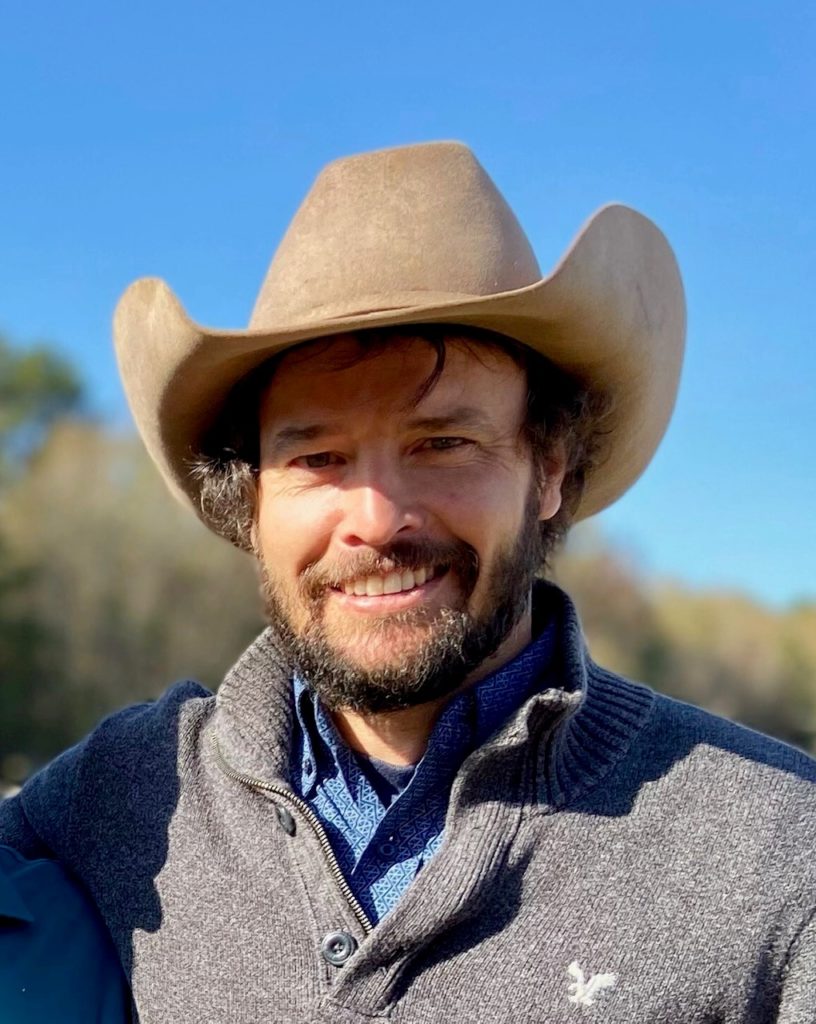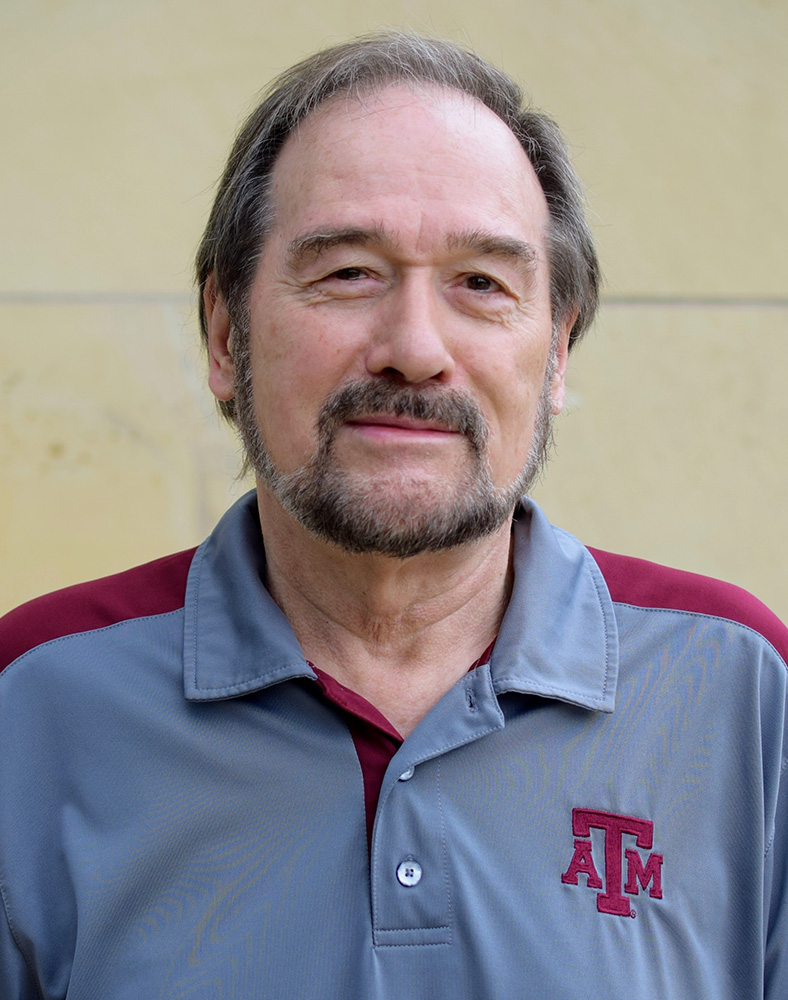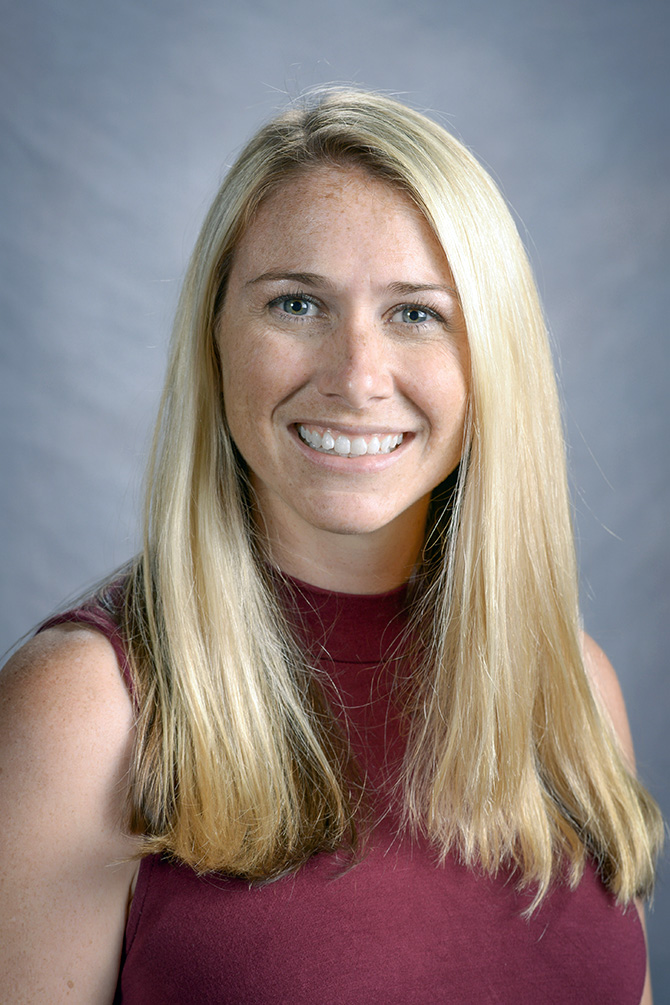Texas A&M AgriLife Research honors outstanding faculty, staff
Recognitions for above-and-beyond efforts
Texas A&M AgriLife Research honors were awarded to seven faculty and staff from across the state at a ceremony and dinner recognizing winners of the 2021 Texas A&M AgriLife Research Director’s Awards on July 12 at Christopher’s World Grille, Bryan.
Four individuals earned Texas A&M AgriLife Research Director’s Awards. These awards were established in 2018 to recognize and reward the outstanding achievements of individuals and teams supporting the agency’s research mission.
Two individuals received Texas A&M Research Faculty Fellow honors. These awards are presented to senior-level research or service professionals who have worked with the agency for at least five years and have demonstrated exceptional leadership in programs or projects with significant statewide impact.
Finally, one individual has been awarded the William A. Dugas Early Career Award for Research Excellence, also created in 2018, which recognizes an early career AgriLife Research faculty member who has made an exceptional research contribution in the prior year.
Administrative Staff Support Award

Judy Young, senior administrative coordinator in the Department of Soil and Crop Sciences, was recognized with the Administrative Staff Support Award.
Young has been with the department more than 33 years, joining in 1989 as a word processor operator. She has worked her way through the ranks to her current position. During her tenure, she has provided administrative support for five department heads.
Her organizational skills and attention to detail helped her manage the busy schedules of all the department heads. She possesses invaluable historical knowledge regarding the department.
Her nomination stated, “Judy is a confidante and friend to the faculty, staff and students who prides herself on her integrity, accountability and passion for helping others.”
Infrastructure/Information Technology Staff Support Award

Dustin Law, farm research services manager for the Texas A&M AgriLife Research and Extension Center at Overton, received the Infrastructure and Information Technology Staff Support Award. Law joined AgriLife Research in 2016.
Law is critical in supporting, maintaining and enhancing the research infrastructure at Overton. He oversees the shop and operations building, an equipment shed and a vehicle yard at the headquarters site; the North Farm, which contains a reproductive physiology laboratory, a horticultural field laboratory, an irrigation system, cattle holding and working facilities, and about 600 acres of horticultural plot areas and pastures; the South Farm, which contains a feed mill, cattle holding and working facilities, and about 600 acres of research pastures and hay meadows; and the East Farm, which has a residence, an education building, a bunkhouse, several equipment sheds, a well and irrigation system, cattle holding and working facilities, and about 450 acres of horticultural plots, pastures and hay meadows.
His nomination stated that one of Law’s many strengths is his ability to oversee all these properties with an uncanny ability to catch problems in a timely manner and quickly arrive at a solution so that critical research activities can continue without unnecessary downtime.
Law is adept at perceiving the “big picture” so that job assignments can be made that keep research activities on track. Juggling diverse activities such as planting research plots, repairing an irrigation system, dealing with tractor equipment issues, and making sure pastures are harvested for research herd management is just another day at the office for Law, the nomination stated.
Technical Staff Support Award

Viktor Grichko, Ph.D., AgriLife Research senior research instrumentation specialist with the Department of Biochemistry and Biophysics, earned the Technical Staff Support Award.
Grichko has been responsible for maintaining and repairing all instruments and appliances in the Sacchettini Laboratory in the Interdisciplinary Life Sciences Building for the last six years. He deals with a very broad range of challenges: from maintaining high-end technical instruments like an X-ray generator to freezers and setting up the environments for specific experiments like vibration-free tables or darkrooms. His technical skills cover mechanical and optical instruments, electronics and computers.
Grichko can repair almost any instrument, and routinely modifies instruments to improve performance or fit nonstandard experiment requirements. He has a doctorate in physics, which advances the depth of his knowledge of how the instruments work. He takes the time to teach new users safe and efficient practices for using instruments and makes suggestions on optimizing their use.
He proactively identifies potential problems and preemptively addresses them by finding parts, updates or replacement options. While doing so, he does not simply fall back on the most obvious or convenient option. Rather, he does extensive research and shops around to identify the best option with the optimal quality and value.
Additionally, he helps others solve instrument problems, and people come to him from all the neighboring labs in the Interdisciplinary Life Sciences Building at Texas A&M.
Research Scientist of the Year

Muthukumar “Muthu” Bagavathiannan, Ph.D., associate professor of weed science and agronomy in the Department of Soil and Crop Sciences, was selected as the Research Scientist of the Year. His program develops digital technologies for accelerating weed ecology research and advancing precision-integrated weed management. The interdisciplinary research involves many local, regional, national and international collaborations.
Bagavathiannan leads or participates in several multistate research projects on integrated weed management funded through competitive grants from the U.S. Department of Agriculture and National Science.
For example, he developed a national research coalition and successfully led a $5.6 million USDA grant program addressing weed resistance in managed turf. This 16-state project trained graduate students and research scientists throughout the country. It helped develop environmentally friendly alternatives to herbicides for effective weed resistance management in turfgrass systems.
Another of his projects, funded by a $2.4 million grant from the USDA-Natural Resources Conservation Service, has helped expand novel non-chemical weed control approaches across the country.
Bagavathiannan actively engages with crop commodity boards such as Cotton Incorporated, Texas Cotton Support, United Sorghum Check-off, Texas Corn Board, Texas Rice Research Foundation and the agribusiness industry to secure additional research funding. He received a Superior Grantsmanship Awardfrom AgriLife Research in 2020.
Bagavathiannan has published over 110 peer-reviewed journal articles, 10 book chapters and several outreach articles. He is an associate editor for Weed Science Society of America and Crop Science Society of America journals.
He has mentored 19 doctoral students, 10 master’s students, eight postdoctoral associates, six research assistants and 26 undergraduates.
Bagavathiannan has received the 2021 Southern Weed Science Society Outstanding Young Scientist Award, the 2020 Weed Science Society of America Outstanding Early Career Scientist Award, the 2019 Vice Chancellor’s Outstanding Early Career Research Award and the 2018 Dean’s Outstanding Early Career Research Award.
William A. Dugas Early Career Award for Research Excellence

Sarah White-Springer, Ph.D., an assistant professor in the Department of Animal Science, was presented the William A. Dugas Early Career Award for Research Excellence.
White-Springer has established a research program focusing on nutritional and training modulation of skeletal muscle metabolism and mitochondrial function in young horses. Additionally, she has fostered collaborations to study muscle biology and energetics in beef cattle, swine and aging humans.
She is a rising star in the field of skeletal muscle physiology, notable for her research excellence as evidenced by national and international presentations, recruitment of horse industry collaborators and funding support of over $2.7 million.
Her international recognition is evidenced by her selection as the sole panelist representing the Future of Equine Research at the Equine Science Society biannual meeting, as well as for receiving the 2021 Equine Science Society Josie Coverdale Award for Outstanding Young Professional.
In 2020 and 2021, White-Springer was instrumental in securing $2 million in federal funding, published 10 manuscripts, and had nine abstracts accepted for presentation at national meetings. She has authored or co-authored 23 refereed articles in top-tier journals, including a first-author paper in Skeletal Muscle. She has mentored seven master’s students and one doctoral student as their committee chair and has served as the primary instructor for six courses.
Faculty Fellow

Pingwei Li, Ph.D., a professor in the Department of Biochemistry and Biophysics, is the newest recipient of the Faculty Fellow Award.
Joining the department’s faculty in 2005, Li researches the structural bases of viral nucleic acids sensing in innate immunity. Over the past 20 years, Li has made immense and fundamental contributions to understanding the structural, biochemical and functional features of innate immunity and host-pathogen interactions.
Significantly, his findings on how the immune system responds to bacterial and viral infection by the cGAS-STING pathway are groundbreaking. The cGAS-STING pathway was revealed as the central component in immune responses to infection and inflammation and cancer. Li’s numerous and impactful contributions to the areas of structural immunology have helped drive the current medicinal revolution of cGAS-STING biology. His findings are highly relevant to developing reagents such as STING agonists and antagonists, which are used to treat cancer and autoimmune diseases.
Recently, Li has made other high-impact contributions to the field via two publications in Nature. He reported a molecular tour de force study detailing how a conserved motif in STING recruits TBK1.
In addition, his lab revealed the cryo-EM structure of cGAS bound to the nucleosome. These exciting discoveries completely reshaped the understanding of how the activity of cGAS is regulated inside cells.
Among Li’s “greatest hits” are ligand-bound structures of RIG-I-like receptors that detect viral RNAs. Host immunity to viruses involves recognizing viral genetic material to promote host defense. In mammals, the RIG-I-like receptors — RIG-I, MDA5 and LGP2 — sense viral RNA in the cytosol and play crucial roles in antiviral immunity. The mechanism by which the host factors recognize the viral RNA had remained unclear until Li revealed the structural mechanism.
Senior Faculty Fellow

Suresh Pillai, Ph.D., molecular microbiologist and National Center for Electron Beam Research director in the Department of Food Science and Technology, earned the Senior Faculty Fellow honor.
Pillai has impacted numerous lives through his externally funded research. He has given expert guidance to policymakers at the federal level and has trained the next generation of food scientists and public health professionals.
He has garnered an impressive amount of external funding support. He has promoted Texas A&M University and electron beam technology to NASA, the U.S. Department of Energy and its National Nuclear Security Administration, and various other institutions to enhance the quality and safety of foods and materials and to protect public health.
Pillai’s influence and impact are most easily seen in his promotion of electron beam technology for protecting public health by inactivating human and animal pathogens.
His leadership of the electron beam research center facilitates the work of multiple researchers in food safety, wherein pathogen destruction and/or food spoilage microbes validation is generated. This work protects food safety and security for a variety of foods essential to human nutrition. U.S. firms have relied on Pillai’s research expertise to produce fresh foods for U.S. and global consumers worldwide.
Pillai’s second core area of public health protection became even more impactful during the COVID-19 pandemic: the use of e-beam systems in producing vaccine strains of human and livestock pathogenic organisms. E-beam can be used to make bacterial and viral vaccine isolates that retain all native surface epitope structural integrity but lose the ability to cause infection. This offers a substantial opportunity to control many human and livestock diseases, including brucellosis, salmonellosis, shigellosis, cholera and other zoonotic and vector-borne diseases.


